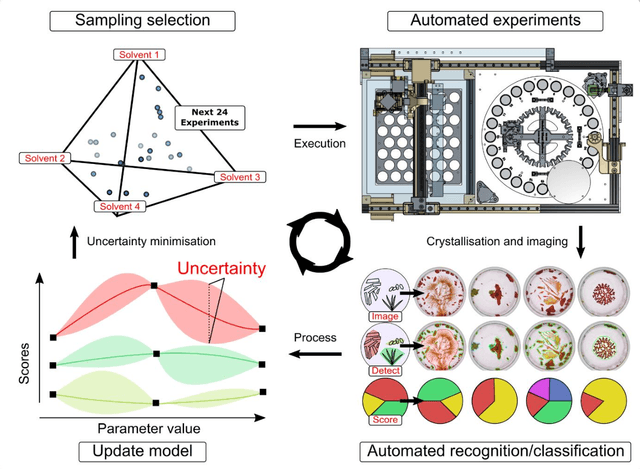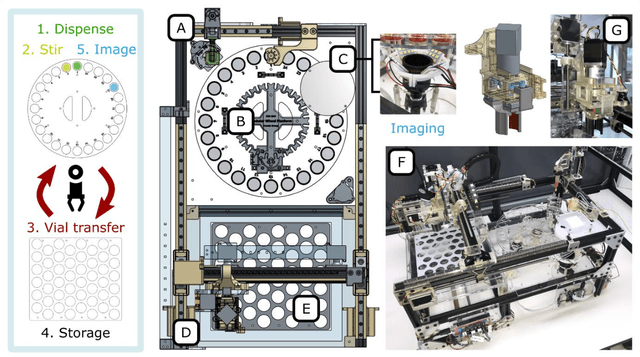AI-Driven Robotic Crystal Explorer for Rapid Polymorph Identification
Paper and Code
Sep 08, 2024



Crystallisation is an important phenomenon which facilitates the purification as well as structural and bulk phase material characterisation using crystallographic methods. However, different conditions can lead to a vast set of different crystal structure polymorphs and these often exhibit different physical properties, allowing materials to be tailored to specific purposes. This means the high dimensionality that can result from variations in the conditions which affect crystallisation, and the interaction between them, means that exhaustive exploration is difficult, time-consuming, and costly to explore. Herein we present a robotic crystal search engine for the automated and efficient high-throughput approach to the exploration of crystallisation conditions. The system comprises a closed-loop computer crystal-vision system that uses machine learning to both identify crystals and classify their identity in a multiplexed robotic platform. By exploring the formation of a well-known polymorph, we were able to show how a robotic system could be used to efficiently search experimental space as a function of relative polymorph amount and efficiently create a high dimensionality phase diagram with minimal experimental budget and without expensive analytical techniques such as crystallography. In this way, we identify the set of polymorphs possible within a set of experimental conditions, as well as the optimal values of these conditions to grow each polymorph.
 Add to Chrome
Add to Chrome Add to Firefox
Add to Firefox Add to Edge
Add to Edge